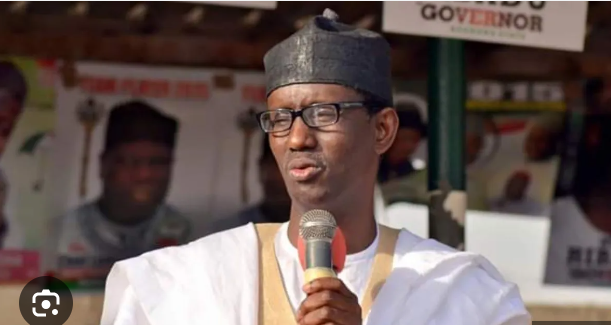The recent denial of Canadian visas to Nigeria’s Chief of Defence Staff, General Christopher Musa, and other high-ranking military officers has sparked a diplomatic row, with Nigeria’s National Security Adviser, Nuhu Ribadu, vehemently condemning Canada’s actions. The incident, which occurred when the Nigerian delegation was en route to Canada for an event honoring war veterans, has been labeled “disrespectful” by Ribadu, who publicly asserted that “Canada can go to hell.” This strong rebuke underscores the growing tension between the two nations and highlights Nigeria’s resolve to assert its sovereignty on the global stage. The visa denial serves as a stark reminder of the complexities and sensitivities inherent in international relations, particularly in the context of historical power dynamics and perceived slights against national pride.
The incident unfolded as General Musa and his team prepared to travel to Canada for a ceremony recognizing the sacrifices of war veterans. While some members of the delegation were granted visas, others, including the Chief of Defence Staff himself, were denied entry, effectively derailing the planned participation in the commemorative event. General Musa expressed his disappointment at the situation, characterizing it as a “wake-up call” for Nigeria to prioritize self-reliance and strengthen its national sovereignty. He emphasized the importance of standing firm as a nation and refusing to be treated dismissively by other countries. This sentiment resonated deeply within the Nigerian government, prompting Ribadu’s forceful response.
Ribadu’s condemnation of Canada’s visa decision reflects a broader sentiment within Nigeria regarding the perceived disrespect shown by Western nations. His statement, delivered at the maiden annual lecture of the National Association of the Institute for Security Studies in Abuja, was met with approval by many Nigerians who share his view that the country should prioritize its own development and security rather than seeking validation from external actors. The visa denial, in this context, becomes a symbol of neocolonial attitudes and perceived double standards, fueling the narrative of Nigeria’s need to chart its own course independent of external pressures.
The incident has ignited a debate within Nigeria about the nation’s place in the world and its relationship with Western powers. Some commentators view the visa denial as a deliberate affront aimed at undermining Nigeria’s military leadership and its efforts to combat regional security challenges. Others see it as a bureaucratic blunder or a consequence of stricter immigration policies, emphasizing the need for improved communication and diplomatic engagement between the two countries. Regardless of the specific cause, the incident has undoubtedly strained diplomatic ties and raised questions about the future of bilateral relations between Nigeria and Canada.
Beyond the immediate diplomatic fallout, the visa denial has also prompted introspection within Nigeria about the country’s own internal challenges and the need for strengthened institutions. Ribadu’s call to “fix our country” resonates with a growing awareness of the need for comprehensive reforms across various sectors, including security, governance, and economic development. The incident serves as a catalyst for renewed focus on nation-building and self-reliance, fostering a sense of urgency in addressing the systemic issues that hinder Nigeria’s progress. It underscores the importance of investing in domestic capacity and reducing dependence on external partners, particularly in areas critical to national security and economic stability.
The visa denial episode serves as a microcosm of the larger dynamics at play in international relations, particularly in the context of post-colonial societies seeking to assert their autonomy and agency on the global stage. It highlights the persistent challenges of navigating historical power imbalances, negotiating equitable partnerships, and maintaining national dignity in the face of perceived disrespect. The incident is likely to have lasting repercussions on the relationship between Nigeria and Canada, prompting both countries to re-evaluate their diplomatic approaches and seek ways to rebuild trust and cooperation. The long-term impact, however, will depend on the willingness of both sides to engage in constructive dialogue and address the underlying concerns that have led to this diplomatic impasse.














